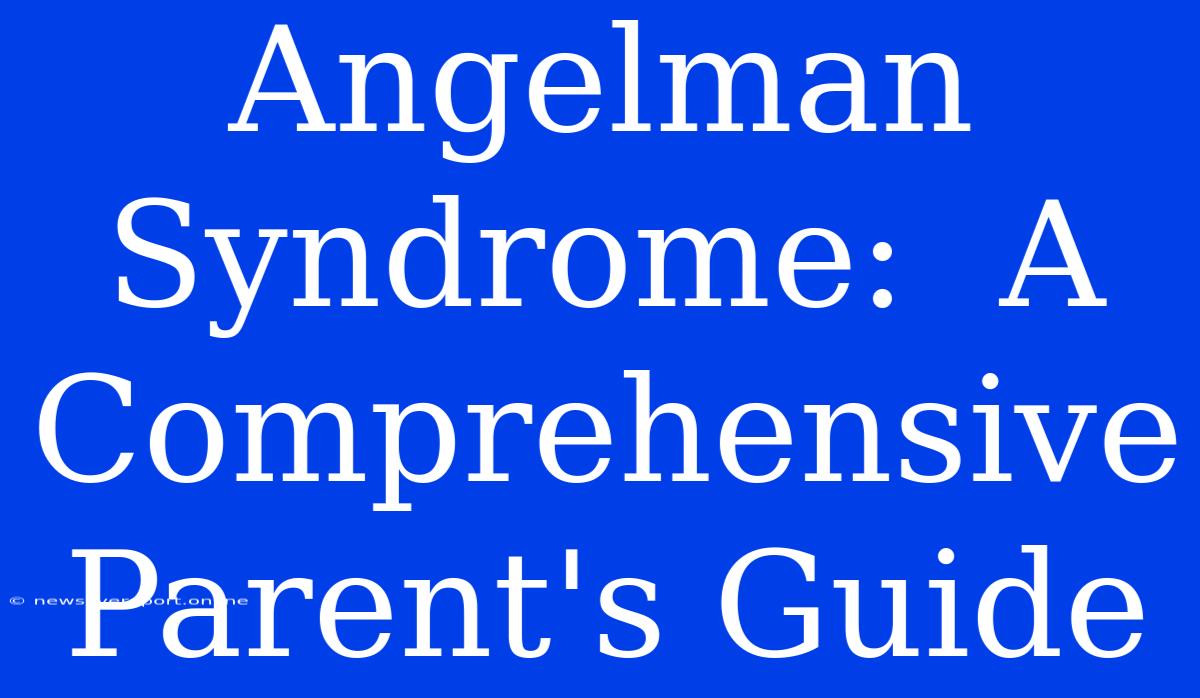Angelman Syndrome: A Comprehensive Parent's Guide
Angelman Syndrome (AS) is a rare neurogenetic disorder that affects the nervous system and causes a range of developmental challenges. If you're a parent navigating the journey with a child diagnosed with AS, this guide is for you. We aim to provide you with the necessary information, resources, and support to understand and manage this condition.
Understanding Angelman Syndrome
What is Angelman Syndrome?
Angelman Syndrome is caused by a genetic defect on chromosome 15. This defect affects the development of the central nervous system, resulting in various symptoms that are unique to each individual.
Symptoms of Angelman Syndrome:
While every child with AS is different, some common symptoms include:
- Developmental delays: Children with AS often experience delays in speech, walking, and motor skills.
- Intellectual disability: They may have varying levels of intellectual disability, ranging from mild to severe.
- Happy demeanor: Despite the challenges, children with AS often exhibit a happy and excitable disposition. This is often described as "happy puppet syndrome."
- Speech impairment: Difficulty speaking, sometimes with a limited vocabulary.
- Seizures: Seizures are common in children with AS and may occur at any age.
- Ataxia: Difficulty with balance and coordination.
- Sleep disturbances: They may experience difficulty falling asleep and staying asleep.
- Hand-flapping: Repetitive hand movements are often seen.
- Unusual gait: A stiff, jerky walking style is characteristic.
- Feeding difficulties: May have difficulties with feeding and eating.
Diagnosis
Diagnosing Angelman Syndrome involves a combination of:
- Physical examination: Observing physical characteristics.
- Genetic testing: Confirming the genetic defect on chromosome 15.
- EEG (Electroencephalogram): To detect brainwave abnormalities.
Treatment and Management
While there is no cure for Angelman Syndrome, various therapies and treatments help manage symptoms and improve quality of life.
Therapy and Intervention:
- Early intervention: Starting early therapies like physical, occupational, and speech therapy can significantly improve development and skills.
- Behavioral therapy: To manage challenging behaviors and promote positive learning experiences.
- Medication: Anti-epileptic medications to control seizures.
- Educational support: Special education programs can provide tailored learning opportunities.
Caregiver Support and Resources
Parenting a child with Angelman Syndrome can be demanding. It's crucial to connect with support networks and resources:
- Angelman Syndrome Foundation: Offers information, research, and support for families.
- Local support groups: Connect with other families facing similar challenges.
- Therapists and counselors: Seek professional guidance to navigate the emotional and practical aspects of caring for a child with AS.
Life with Angelman Syndrome: A Journey of Love and Hope
While Angelman Syndrome presents unique challenges, it's essential to remember that these children are individuals with unique strengths, talents, and personalities. With the right support, love, and intervention, they can live fulfilling lives.
Understanding the condition, seeking appropriate care, and nurturing your child's strengths will empower you to navigate this journey with grace and resilience. Remember, you are not alone.

